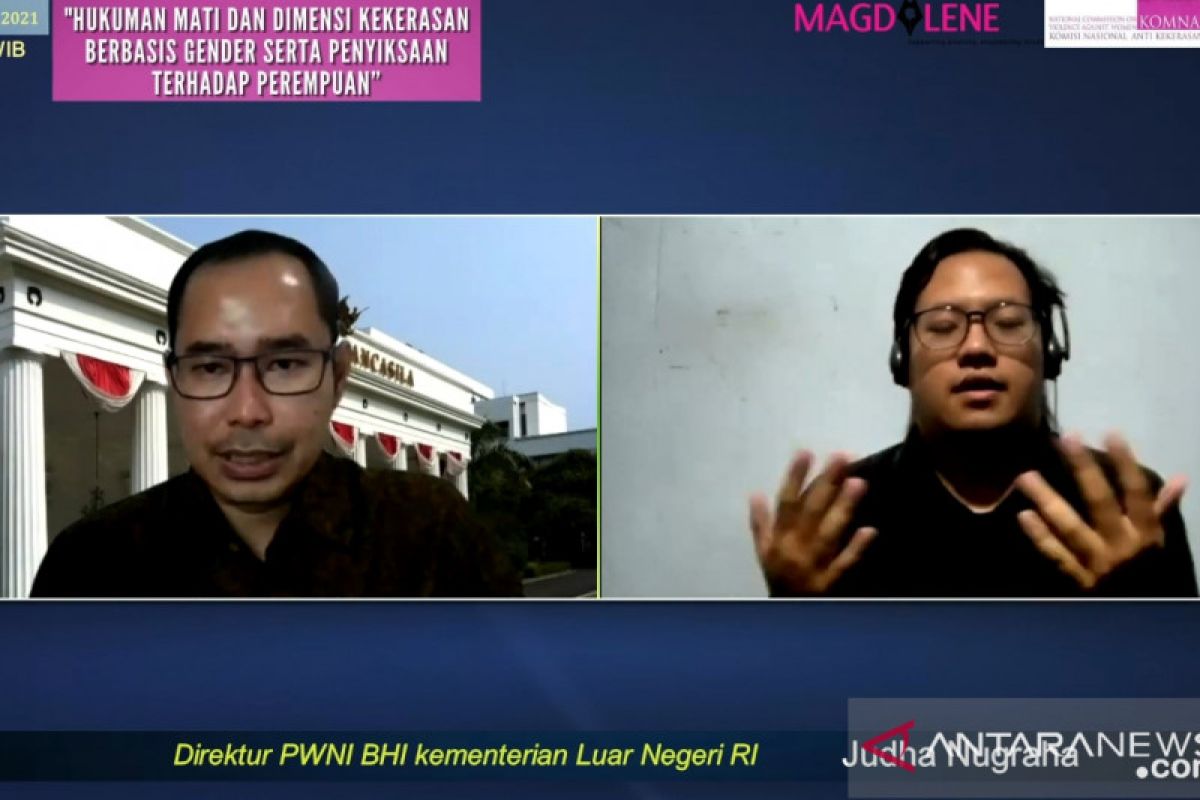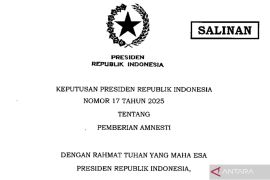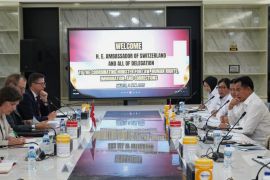"There are three principles that we adhere to protect Indonesian citizens which are regulated in the Minister of Foreign Affairs' Regulation Number 5 of 2018," Director for the Protection of Citizens and Legal Entities Overseas at the Ministry of Foreign Affairs, Judha Nugraha, said here on Monday.
The first is prioritizing the responsible parties, he said. Second, the government does not take any criminal or civil responsibility, he added. Lastly, the protection is provided in accordance with national law, local state law, and customary international law, he continued.
"We do not give impunity to our citizens who commit crimes abroad, but the duty of our state is to provide legal assistance," Nugraha remarked.
The legal assistance is intended to ensure Indonesian citizens facing legal action in other countries have fair access to their rights, he said.
Efforts to protect Indonesian citizens from the death penalty in foreign countries also depend on the country imposing the sentence, he added. For example, Saudi Arabia and Middle Eastern countries usually refer to Islamic law, he explained.
"In Islamic countries, there are three types of murder cases, namely hadd, takzir, and kisas," Nugraha said.
However, murder cases in those countries are generally included in kisas, he added. For kisas, there is an apology mechanism that is carried out or given by the victim's family, he elaborated.
In addition, the state has also made a number of other efforts to help Indonesian citizens in foreign countries encountering problems with the law through litigation and non-litigation steps, he said.
Legal efforts taken include consular access, appointment of lawyers and translators, and other efforts according to the law in the local country, he informed.
Diplomatic efforts include diplomacy at the bilateral level through lobbying or diplomatic notes and approaching the sultan or the local state government, he said.
The government can also approach the victim's family, provide moral support, and campaign for public awareness, he added.
Related news: Death penalty is worst-case scenario of discrimination against women
Related news: Death penalty highest form of violence against women: Komnas Perempuan
Related news: Indonesian repatriated after Malaysian court overturns death penalty
Translator: M Zulfikar, Resinta S
Editor: Sri Haryati
Copyright © ANTARA 2021









